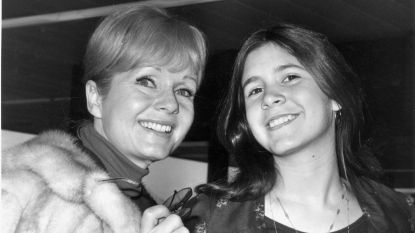I’ve Raised a Houseful of Millenials, and They All Think I’m Out of Touch

I’ve raised a houseful of millennials. The oldest and the youngest of my five children are fourteen years apart, but all five fit squarely within the millennial generational timeframe. A houseful of millennials signifies a generational divide that is staggering in its proportions. Even though my spouse and I have raised these people with a great deal of intention and care, they believe collectively and individually that my world view is outdated and my perspective is out of touch. When I endeavor to share my advice about the direction of their lives, I will most assuredly inspire an exasperated sigh or a condescending eye-roll which implies that they’ve got it all figured out and don’t need my antiquated way of doing things.
Millenial Generation: Raising Good People
And yet, my children love my life stories. They enjoy my tales of a little girl allowed to run free in her South Central Los Angeles neighborhood with her ride-or-die cousins, and her rascal older brother. They get a kick out of hearing about my colorful high school boyfriends; my adventurous travels overseas in college and my top secret sorority high jinks. Recently, my husband and I got into a disagreement about how our relationship began — did he approach me first or did I make the first move? Not surprising for 32 years of marriage, my spouse’s view of that moment does not perfectly align with mine. Our children love to referee these lively and self-indulgent discussions between him and me because, I suspect, the discussions become stories and those stories become windows into a long-ago past involving younger, more spontaneous and often unpredictable versions of us. From their millennial point of view, we are now, if nothing else, predictable and plodding and old. But the stories of our past, which also represent the stories of their beginnings, are full of funny and twisted explanations for why we are who we are now and to a significant degree, who they are, as well.
MUST-SEE: Moms Share Their First Words After Giving Birth and You Will Totally Relate to Them
And so it is with family stories.
Our stories of romance and adventure, adversity and joy become a part of a collection of family favorites. Every family has these stories. Some of them trickle down from generation to generation, told again and again — over Thanksgiving dinner, as bedtime stories, as a part of a family reunion speech, or in someone’s heartfelt eulogy. These stories are a part of a valuable inheritance that we often take for granted. For my purposes here, “taken for granted” means that you believe your family stories will last forever and that you don’t need to write them down.
If we don’t write our family stories, we risk losing them.
These kernels of family history are important because they strengthen the binds between us. The truth is, our life stories are not just our stories. They are part of the many bundles that make up the life stories of our family members and everyone else we have touched along the way. We should not underestimate the power our stories have to connect, to inform, and to help our families. And they are important even if they don’t include fairy-tale happy endings or glowing testimonials of familial perfection.
Some stories may be painful or difficult to reveal. I have often shared with my children the story of my very first (and very last) foray into politics. I was in the eighth grade and new to my middle school when I inexplicably decided to run for class President. My family moved to a new neighborhood the summer before my last year of middle school. In a brand new middle school, I was unknown and unblemished as a candidate. I’d run a solid campaign as the new kid. My slogan promised: new student, new leadership, new vision. And I’d written this brilliantly funny poem for my campaign speech.
But then at the last minute, as in, the day before I was to deliver my speech, I remembered that I was a shy person. What was I doing? I could not go through with this crazy idea. What does a class President actually do, anyway? So I told my mother that I was sick. Well, I was sick. There was a civil war happening in my stomach — the inner critic and the eternal optimist in mortal combat with machetes. My mother must have known that I was just afraid, but she didn’t push me. The inner critic had won. I called in sick the next day and asked a friend to deliver my speech for me. I lost the election, of course, handing an easy victory over to my opponent.
MUST-SEE: How Do I Know If My Teen Is Depressed? An Expert Answers
When they hear this story, my kids are amazed that their confident, public speaking mother had been, at this moment in her youth, an utter failure at crunch time, someone who shrunk away when it was time to step up and shine. I tell the story as one of those childhood decisions I most regret. I allowed my fear of failure to guarantee my failure. Failure sucks, but regret is much suckier. I once shared the story with my youngest daughter when she wanted to bow out of her first leading role in a classroom play. I told her as my justification for not allowing her to quit. I wanted her to build her confidence upon success, and not regret. She didn’t quit. She was brilliant. And she enjoyed all of the accolades resulting from her hard work.
Why Family Stories Matter
Each time I’ve told that story, my stomach hurt again, an ache in the pit of my stomach. This is how stories of failure and regret can make you feel. But somehow, when you put the story into words, when you grapple with your memory and struggle to find the right verb and the perfect adjective, you get the story out of you. You see it as a marker for where you were versus where you are. Your regret becomes just a paragraph and not a permanent presence in the pit of your stomach. Don’t get me wrong, the writing and sharing of your difficult stories might be distressing for you and maybe even for others, but this does not in any way diminish their potential to help and heal, beyond your imagining.
There is not much I can do to impress my children. They are a creative, soulful bunch who see the world differently, forging new paths in their own ways. But as I sit at my writing desk and work at wrangling my words into something worth reading, at least I know I can offer my millennials the stories of my life. And for now, that’s motivation enough to keep at it.
This essay was written by Gina Carroll, the author, speaker, and editor behind “Family Stories Matter” and “24 Things You Can Do with Social Media to Help Get into College.” Born and raised in Los Angeles, she currently lives with her husband and five nearly children in Houston, Texas.
Six Flags Staff Orders Woman in ‘Inappropriate’ Outfit to Change Before She Can Enter Park
When Teen Son Slammed His Bedroom Door, Genius Parents Taught Him a Lesson
15 Funny Family Vacation Photos That Didn’t Turn Out Quite Like Expected













